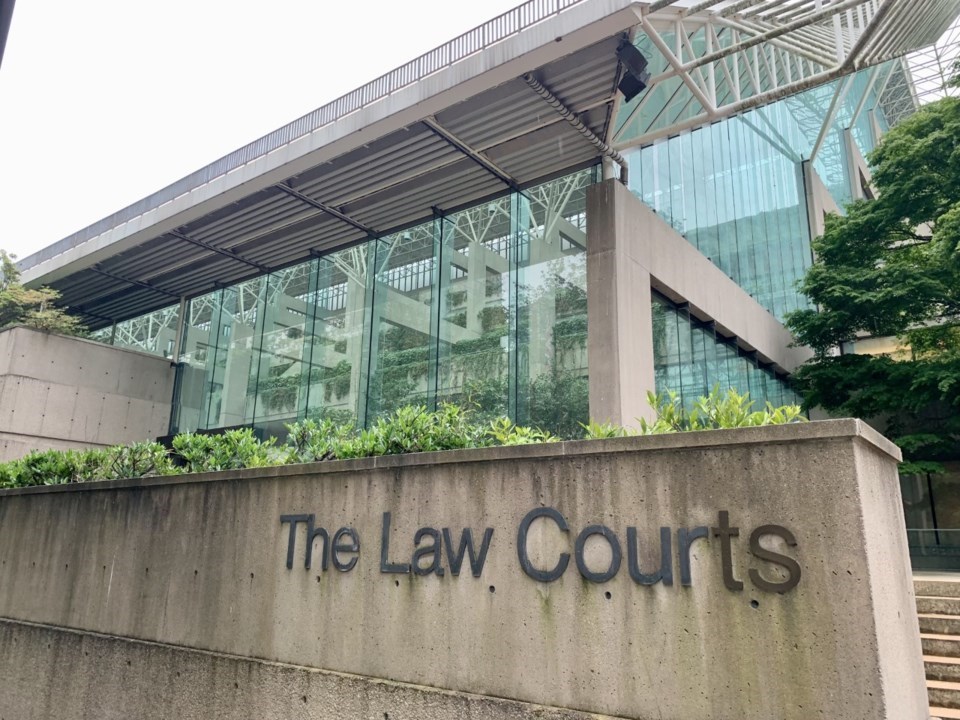B.C.’s Court of Appeal has upheld a 14-year sentence for a manslaughter conviction in a case where a jury rejected a first-degree murder verdict.
George Murray Solmes Bragg alleged the judge erred in assessing his moral culpability, establishing the sentencing range and failing to give any weight to his expression of remorse.
A jury convicted Bragg of manslaughter on May 7, 2022 following the 2019 death of Richard Wayne Duncan.The jury acquitted Bragg of second-degree murder; instead, he was convicted on the lesser-included offence.
The events unfolded after Bragg (then 74), his son Mark Bragg, and Mark's acquaintance, Wayne Duncan, rented a South Surrey house, B.C. Supreme Court Justice Murray Blok said in his July 2022 sentencing decision.
Both Braggs testified that during the months the trio shared the house, Duncan displayed an unpredictable and hair‑trigger temper. They said he threatened and abused them frequently.
The court heard things came to a head on Sept. 5, 2019, with a dispute over the payment of rent. Blok said Duncan seemed to believe he was being accused of taking the rent money.
“Duncan then threatened the Braggs by telling them that he would be dealing with them at midnight,” Blok said, adding discrepancies in evidence led him to conclude the threat was “of inflicting substantial physical harm on both Braggs.”
Duncan continued to text the Braggs, reminding them midnight was approaching.
Bragg retrieved a legal eight‑shot revolver and loaded it with .22 magnum ammunition, the court heard.
“Bragg said he chose the .22 magnum ammunition because of its stopping power, noting the ordinary .22 calibre ammunition was not sufficient and that he had killed bears and deer with the .22 magnum and, in his words, ‘I know what it’ll do,’” Blok said. “He also said the regular ammunition ‘is not going to do anything to a large‑framed person,’ which Mr. Duncan was.”
Duncan emerged from his room at midnight. Bragg testified he was saying things that indicated he was going to make good on his threats.
Both Braggs were in a hallway and told Duncan to stop. He did not and Bragg began shooting.
Eight shots were fired, all hitting Duncan. “Two of the eight gunshot wounds were serious and one was deemed to be the cause of death,” Blok said.
Blok noted the manslaughter verdict means the jury rejected Bragg's self‑defence claim.
On appeal, Bragg sought a sentence of four to six years’ imprisonment, a suggestion the three-judge panel unanimously rejected.
In his appeal decision released Feb. 14, Justice Leonard Marchand said Blok committed no error in determining Bragg’s sentence.
On the issue of moral blameworthiness, Marchand said Blok had valid reasons for rejecting Bragg’s submission that his case was “near self-defence.”
Marchand reiterated Blok’s finding that Bragg planned his actions for four hours and failed to pursue the “obvious option” of calling the police before using excessive and lethal force as a result of his “misguided perception” of the circumstances.
“(Blok) engaged in a careful fact-finding process, fully appreciated the nuances of the case, thoughtfully balanced a variety of competing factors, clearly explained his views regarding the seriousness of the offence and Mr. Bragg’s moral culpability, and imposed a proportionate and fit sentence,” Marchand said.
“The judge discharged his duty in a commendable and error-free way,” he said.



